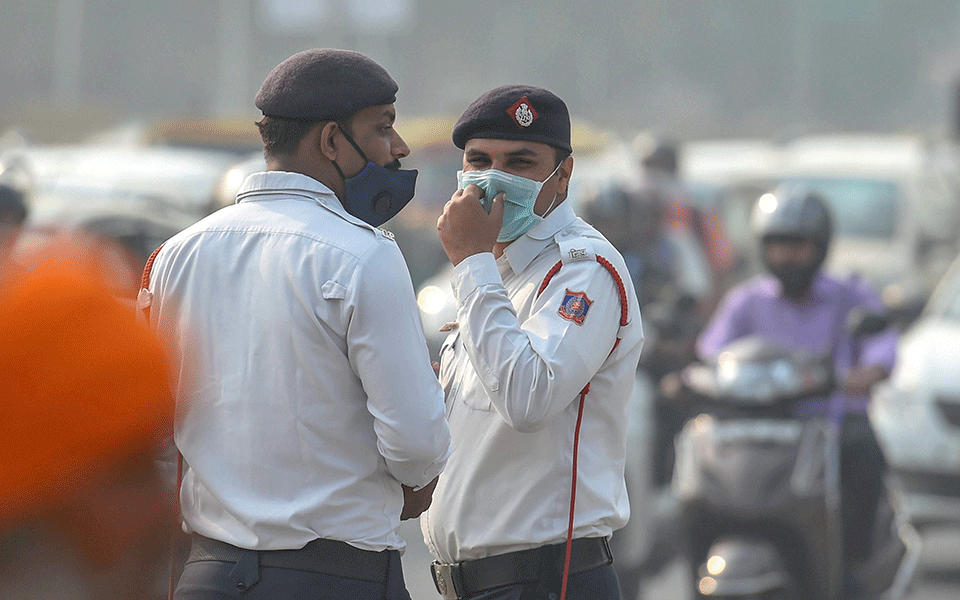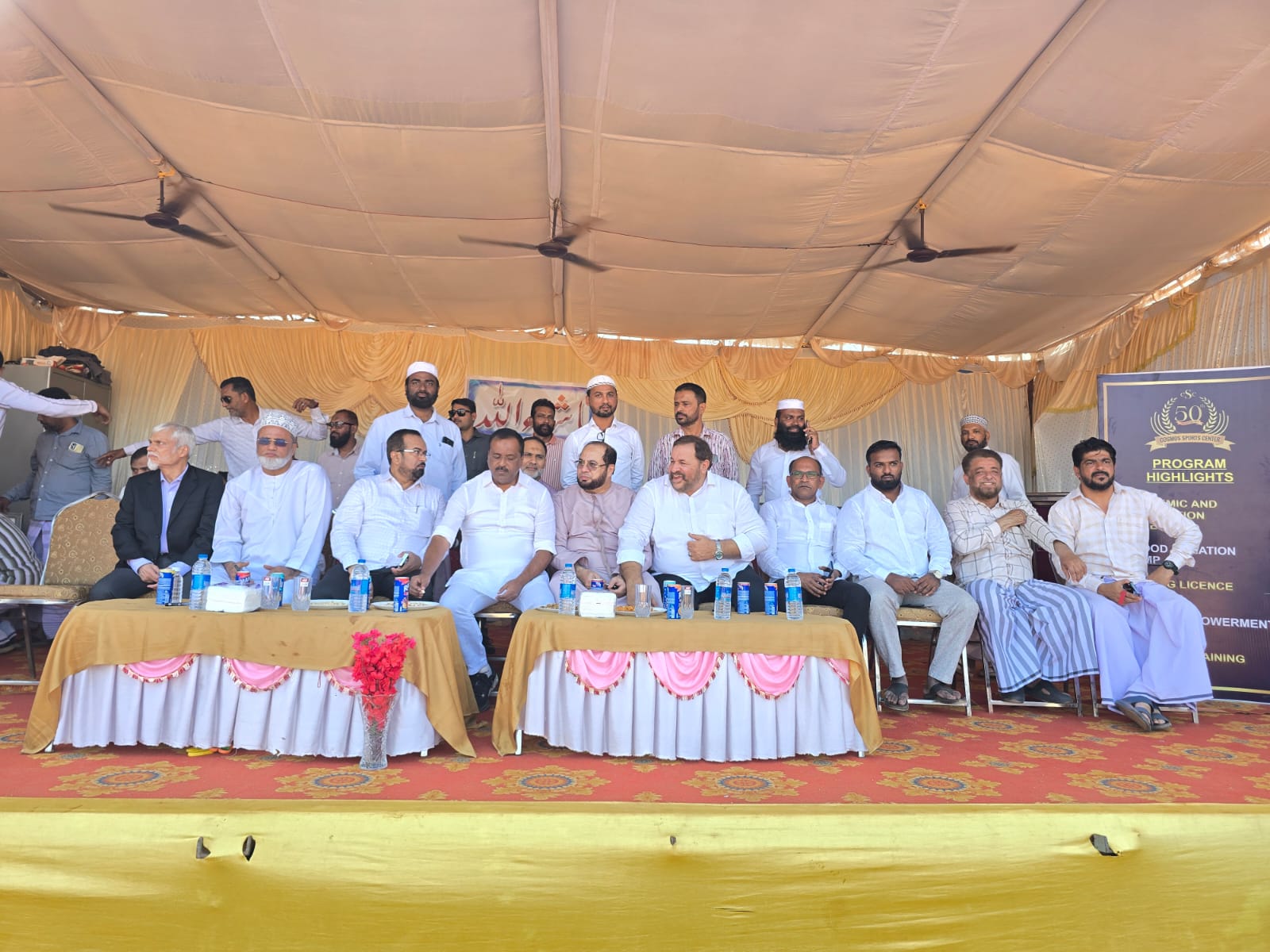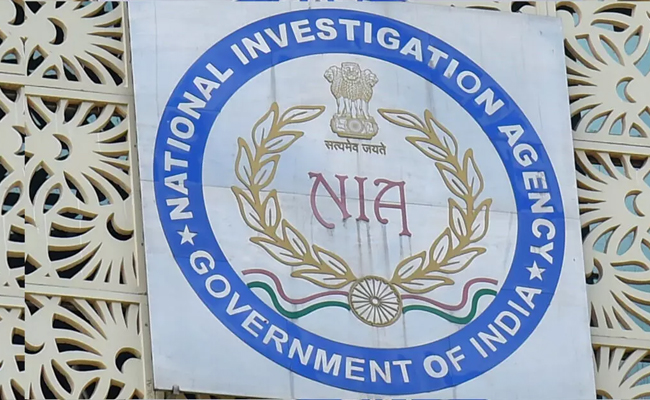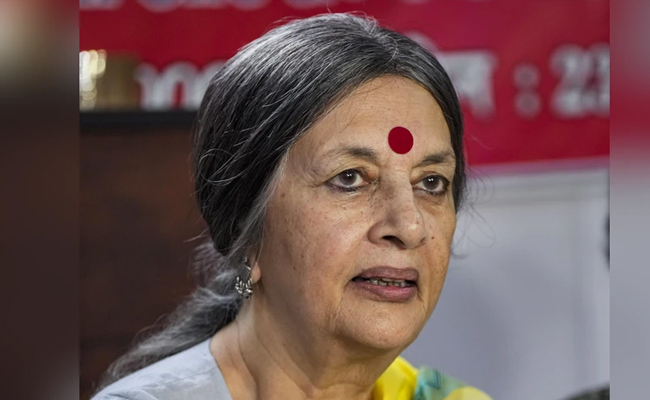New Delhi, Oct 30: Delhi's air quality turned 'severe' on Tuesday for the first time this season with stubble burning intensifying in neighbouring states, authorities said.
The overall Air Quality Index (AQI) was 401, falling in the 'severe' category, the highest this season, Central Pollution Control Board officials said.
The Centre-run System of Air Quality Forecasting And Research (SAFAR) recorded the AQI at 410.
An AQI between 0 and 50 is considered 'good', 51 and 100 'satisfactory', 101 and 200 'moderate', 201 and 300 'poor', 301 and 400 'very poor', and 401 and 500 'severe'.
Eighteen areas of Delhi recorded 'severe' air quality with the highest AQI at 4 PM recorded at Anand Vihar at 467, according to data by the CPCB.
Faridabad, Ghaziabad, Gurgaon and Noida recorded 'severe' air pollution, crossing the AQI of 400. Greater Noida's air is also on the brink of turning severe, according to the data.
The Centre-run System of Air Quality Forecasting And Research (SAFAR) attributed the spike to "heavy stubble burning in the last 24 hours and calm winds".
About 28 per cent of pollution by PM2.5 (presence of particles in the air with a diameter of less than 2.5 micrometres) on Tuesday was caused due to regional factors like stubble burning, SAFAR officials said.
The Indian Institute of Tropical Meteorology (IITM) also spotted a large number of biomass fire spots through satellite imageries in neighbouring states of Delhi.
A SAFAR official said pollution is likely to increase faster now with lead pollutant as PM10 because of new development as shown by SAFAR-model where it is indicating that western disturbances may hit over western Himalayan region from October 31.
"Lot of moisture is already getting introduced in Delhi sky as an early signature. The withdrawal will bring even more moisture in the air and result in fall in temperature. Upper winds already turned north-westerly (stubble site) today. Only favourable thing is that upper wind speed is moderate and fire counts are low," the official said.
The leading factor causing severe pollution levels also include moisture and heavy air.
"The increase in surface wind speed can only prevent AQI to cross severe zone," the official said.
D Saha, former additional director and head of air quality management division in CPCB, said entire northern India coupled with the Indo-Gangetic plains are under the grip of 'severe' to 'very poor' air quality.
"There are depression in eastern India, which does not allow free flow of air from north or north west resulting in calm condition both in the upper and lower atmosphere," he said.
Let the Truth be known. If you read VB and like VB, please be a VB Supporter and Help us deliver the Truth to one and all.
Mumbai (PTI): In view of Argentine superstar footballer Lionel Messi's visit to Mumbai on Sunday, the city police are implementing stringent security measures, like not allowing water bottles, metals, coins inside the stadiums and setting up watchtowers to keep an eye on the crowd, officials said.
The police also said taking extra care to avoid any stampede-like situation and to prevent recurrence of the chaotic situation that unfolded in Kolkata during Messi's visit on Saturday as thousands of fans protested inside the Salt Lake stadium here after failing to catch a clear glimpse of the football icon despite paying hefty sums for tickets.
Messi is expected to be present at the Cricket Club of India (Brabourne Stadium) in Mumbai on Sunday for a Padel GOAT Cup event followed by attending a celebrity football match. He is expected to proceed to the Wankhede Stadium for the GOAT India Tour main event around 5 pm.
"In view of Lionel Messi's visit to Mumbai, the police are geared up and have put in place a high level of security arrangements in and around the stadiums located in south Mumbai. Considering the chaos that prevailed in Kolkata and the security breach, we have deployed World Cup-level security arrangements at Brabourne and Wankhede stadiums," an official said.
Expecting heavy crowd near the stadiums during Messi's visit, the city police force has deployed more than 2,000 of its personnel near and around both the venues, he said.
As the Mumbai police have the experience of security 'bandobast' during the victory parade of ICC World Cup-winning Indian team and World Cup final match at the Wankhede Stadium, in which over one lakh cricket fans had gathered, we are prepared to handle a large crowd of fans, he said.
"We are trying to avoid the errors that occurred in the past," the official said.
There is no place to sneak inside the stadiums in Mumbai like the Kolkata stadium, according to him.
The police are also asking the organisers to provide all the required facilities to the fans inside the stadium, so that there will be no chaos, he said, adding the spectators have purchased tickets in the range of Rs 5,000 to 25,000. After paying so much of amount, any spectator expects proper services, while enjoying the event, he said.
The police are expecting 33,000 spectators at the Wankhede Stadium and over 4,000 at Brabourne Stadium. Besides this, more than 30,000 people are expected outside and around the stadiums just to have a glimpse of the football sensation, he said.
The organisers responsible for Messi's India visit recently came to Mumbai to discuss security arrangements. During the meeting, the Mumbai police asked them not to take the event lightly, according to the official.
After those requirements were fulfilled, the final security deployment was chalked out, he said.
Police has the standard procedure of the security arrangements inside the Wankhede Stadium, where people are barred from taking water bottles, metals objects, coins. Police are setting up watch towers near the stadiums and there will be traffic diversions, so that there is maximum space available to stand, according to the official.
Police are also appealing to the spectators to use public transport service for commuting and avoid personal vehicles to reach south Mumbai.
To avoid any stampede-like situation, police are also taking precautionary measures and will stop the fans some distance ahead of the stadium and public announcement systems will be used to guide the crowd. Barricades will be placed at various places to manage the crowd.
In case the crowd swells up beyond expectation, the police will divert people to other grounds and preparations in this regard underway, he said.
Additional police force has been deployed in south Mumbai to tackle any kind of situation, he said.





